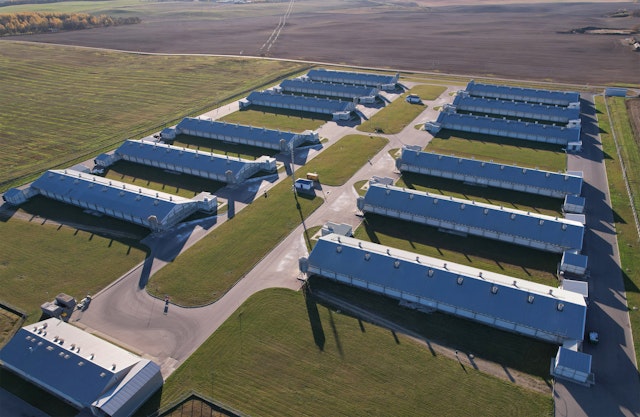Belgium's Energy Market: Financing Challenges And Opportunities For A 270MWh BESS

Table of Contents
Understanding the Belgian Regulatory Landscape for Energy Storage
The regulatory framework governing energy storage in Belgium is evolving, impacting the feasibility and financing of large-scale BESS projects. Understanding this landscape is paramount for securing investment. Key aspects include grid connection rules, licensing procedures, and potential revenue streams from ancillary services.
-
Elia's Role: Elia, the Belgian transmission system operator, plays a crucial role in the grid connection process. Securing grid connection approval requires a detailed application outlining technical specifications, grid impact assessments, and compliance with Elia's connection codes. Delays in this process can significantly impact project timelines and financing.
-
Permits and Licenses: Installing a 270MWh BESS requires various permits and licenses at both the regional and federal levels. These may include environmental permits, building permits, and operational licenses. Navigating this complex permitting process requires expertise and careful planning to avoid delays.
-
Revenue Streams from Grid Services: Participation in frequency regulation and other ancillary services offers significant revenue potential for BESS projects. Elia operates a market for these services, and BESS operators can bid to provide grid stability and flexibility, generating additional income streams beyond energy arbitrage.
-
Tax Incentives and Subsidies: The Belgian government offers various tax incentives and subsidies for renewable energy projects, including energy storage. These incentives can significantly reduce the overall capital costs and improve the financial attractiveness of BESS investments. Staying updated on available programs and eligibility criteria is crucial for maximizing financial benefits.
Assessing Financing Options for a 270MWh BESS in Belgium
Securing financing for a 270MWh BESS requires a multifaceted approach, considering various funding sources and structuring options.
-
Debt Financing: Bank loans and green bonds are common sources of debt financing for large-scale infrastructure projects. Several Belgian and international banks actively finance renewable energy projects, offering competitive interest rates, particularly for projects with strong revenue streams and robust risk mitigation strategies.
-
Equity Financing: Private equity firms and venture capital funds are increasingly investing in the energy storage sector. These investors seek high-growth potential and attractive returns, making them a viable option for projects demonstrating strong market fundamentals and a clear path to profitability.
-
Public Funding: Belgian regional and federal governments offer grants and subsidies for renewable energy projects, aiming to accelerate the energy transition. These programs often provide upfront capital support, reducing the project's financial risk and making it more attractive to investors.
-
Project Finance: Structuring a project finance deal tailored to the BESS's specific characteristics is crucial for managing risks and attracting investors. This approach typically involves a combination of debt and equity financing, with the project's cash flows used to repay the debt.
-
Power Purchase Agreements (PPAs): Securing long-term PPAs with off-takers can significantly de-risk the project and enhance its bankability. PPAs guarantee a stable revenue stream, making it easier to secure debt financing and attract equity investors.
Challenges in Securing Financing for Large-Scale BESS
Despite the opportunities, financing a 270MWh BESS in Belgium presents significant challenges.
-
High CAPEX: The high capital expenditure associated with large-scale battery storage is a major hurdle. Securing sufficient financing to cover the initial investment costs requires a compelling financial model and strong investor confidence.
-
Technological Risk: Technological advancements in battery storage are rapid, presenting risks related to technology obsolescence and performance degradation. Mitigating these risks requires careful technology selection, robust warranties, and risk-sharing mechanisms within the financing structure.
-
Regulatory Uncertainty: Changes in energy market regulations and policies can impact the profitability of BESS projects. This uncertainty adds risk to the investment, requiring flexible financing structures and careful risk assessment.
-
Competition for Capital: The renewable energy sector is attracting significant investment, creating competition for limited capital. BESS projects must demonstrate a clear competitive advantage to attract investors.
-
Permitting Complexity: The complexity of securing the necessary permits and approvals adds time and cost to the project, potentially impacting investor returns and financing timelines.
Opportunities and Market Drivers for BESS Investment in Belgium
Several market drivers are creating significant opportunities for BESS investment in Belgium.
-
Grid Stabilization Services: The increasing integration of intermittent renewable energy sources (solar and wind) necessitates grid stabilization services. BESS systems are well-suited to provide these services, generating additional revenue streams.
-
Renewable Energy Integration: Belgium's commitment to increasing renewable energy penetration requires robust energy storage solutions to manage intermittency and ensure grid reliability.
-
Government Support: Government policies supporting energy storage deployment create a favorable investment climate, fostering confidence among investors.
-
Ancillary Service Revenue: Participation in ancillary service markets provides a diversified revenue stream, reducing reliance on energy arbitrage.
-
Arbitrage Opportunities: Fluctuations in electricity prices create arbitrage opportunities, allowing BESS operators to buy energy at low prices and sell it at higher prices.
Conclusion
Financing a 270MWh BESS in Belgium presents both significant challenges and substantial opportunities. While the high capital expenditure and regulatory complexities pose hurdles, the growing demand for grid services, government support, and potential for revenue generation create a compelling investment case. Careful consideration of the various financing options, coupled with a thorough understanding of the Belgian regulatory landscape, is critical for successful project development. By strategically navigating these challenges, investors can capitalize on the substantial potential of Belgium's energy market for large-scale battery energy storage solutions and contribute to the country's renewable energy transition. Explore the opportunities and begin planning your Belgium's energy market BESS project today!

Featured Posts
-
 Russell Westbrooks Birthday Serenade For Nikola Jokic Nuggets Heartwarming Moment
May 04, 2025
Russell Westbrooks Birthday Serenade For Nikola Jokic Nuggets Heartwarming Moment
May 04, 2025 -
 Popular Vote Winners Disqualified Gonzalez And Salzer Elected Sg President And Vice President
May 04, 2025
Popular Vote Winners Disqualified Gonzalez And Salzer Elected Sg President And Vice President
May 04, 2025 -
 Ufc 314 Volkanovski Vs Lopes Fight Card Breakdown
May 04, 2025
Ufc 314 Volkanovski Vs Lopes Fight Card Breakdown
May 04, 2025 -
 Nyc Late Night Shoot Bradley Cooper Directing Will Arnett For Is This Thing On
May 04, 2025
Nyc Late Night Shoot Bradley Cooper Directing Will Arnett For Is This Thing On
May 04, 2025 -
 Marvels Quality Control Addressing Criticism Of Its Films And Series
May 04, 2025
Marvels Quality Control Addressing Criticism Of Its Films And Series
May 04, 2025
